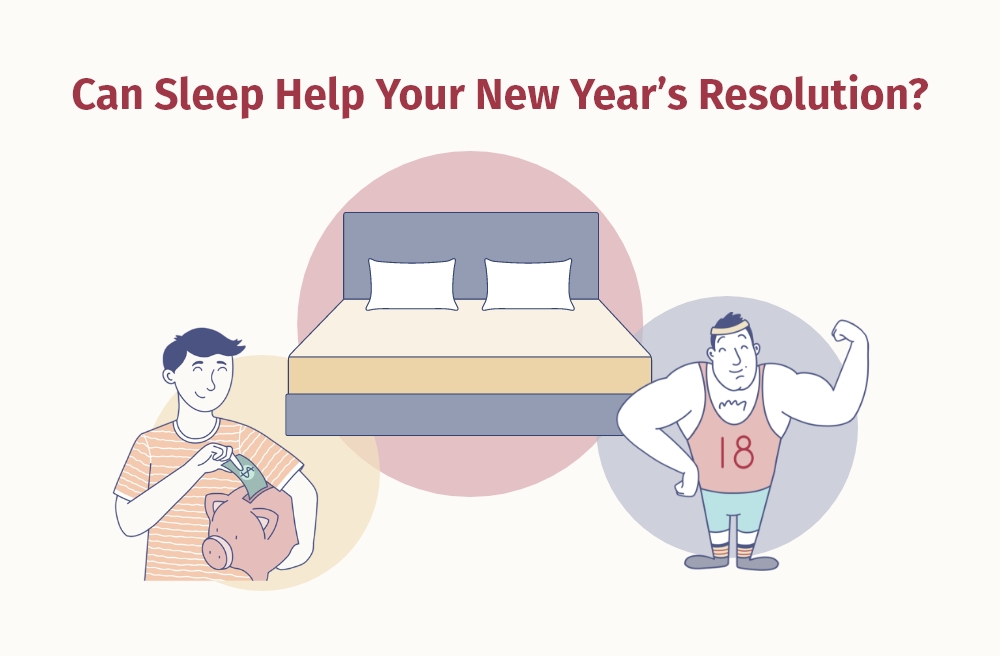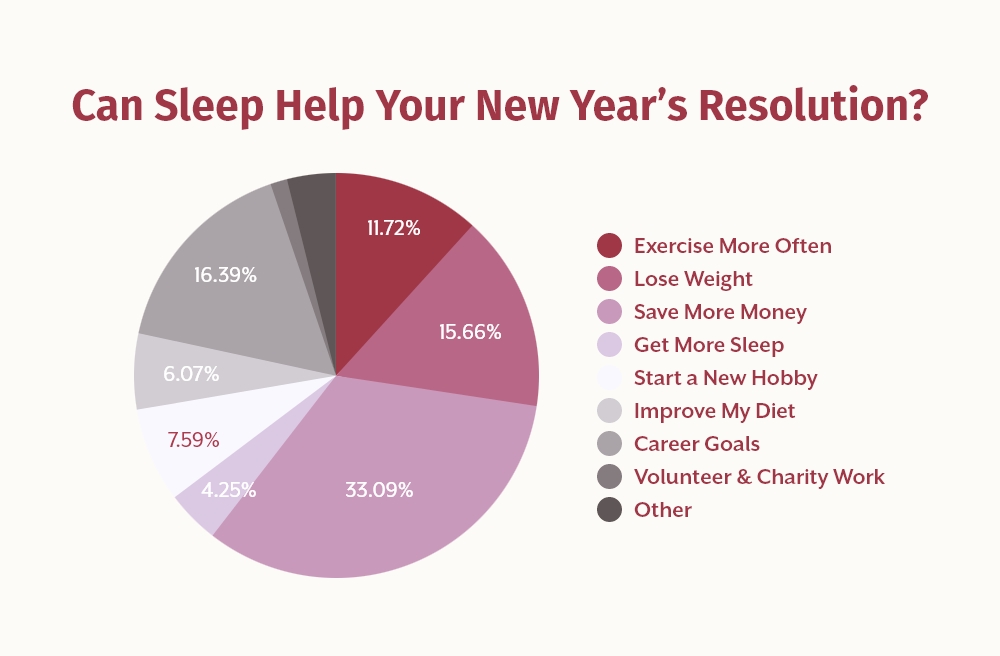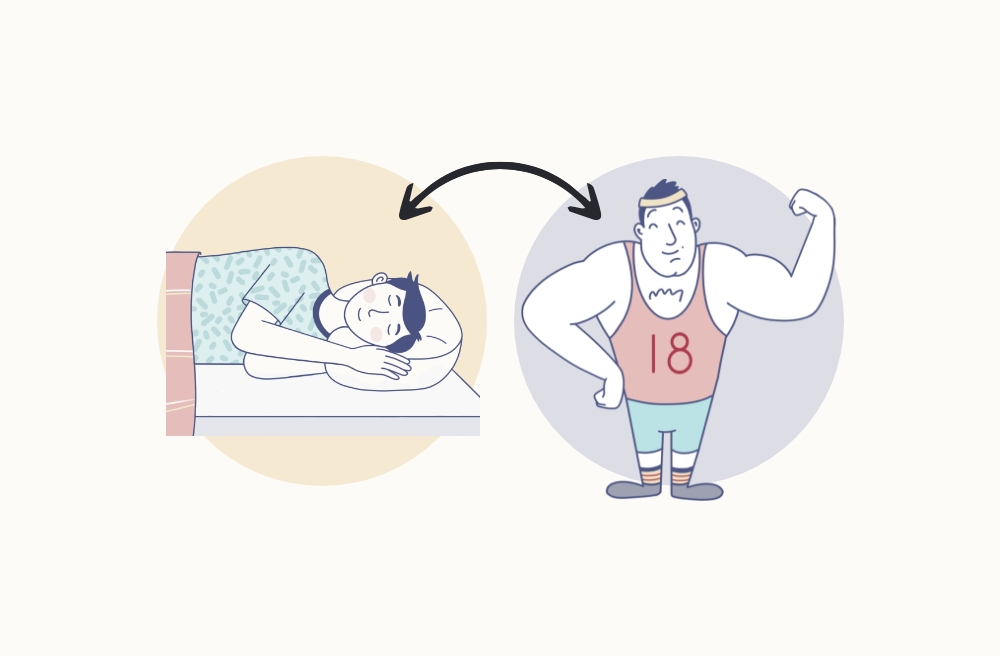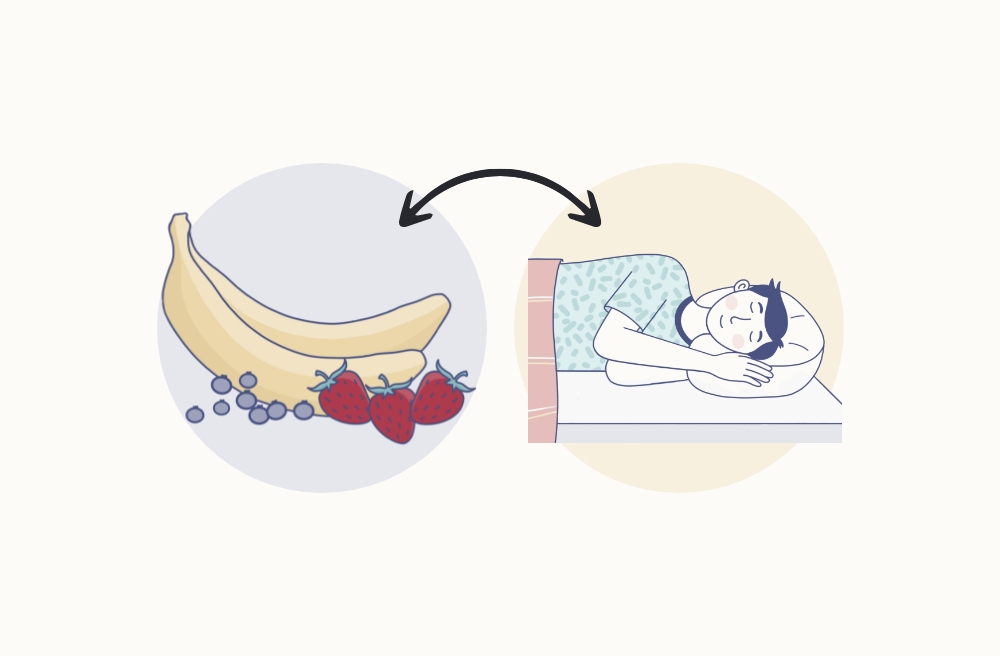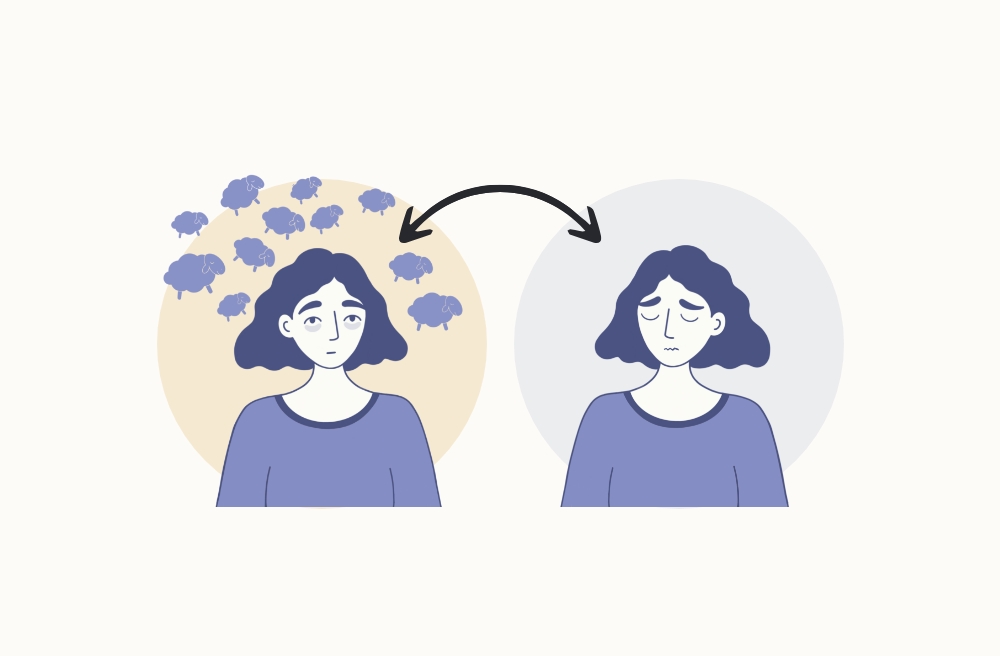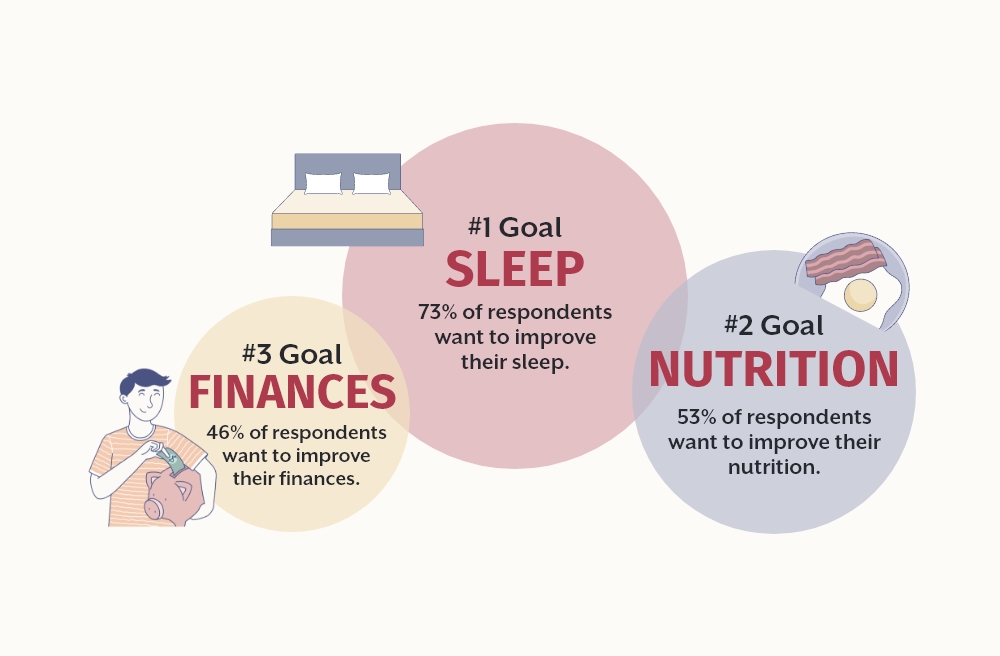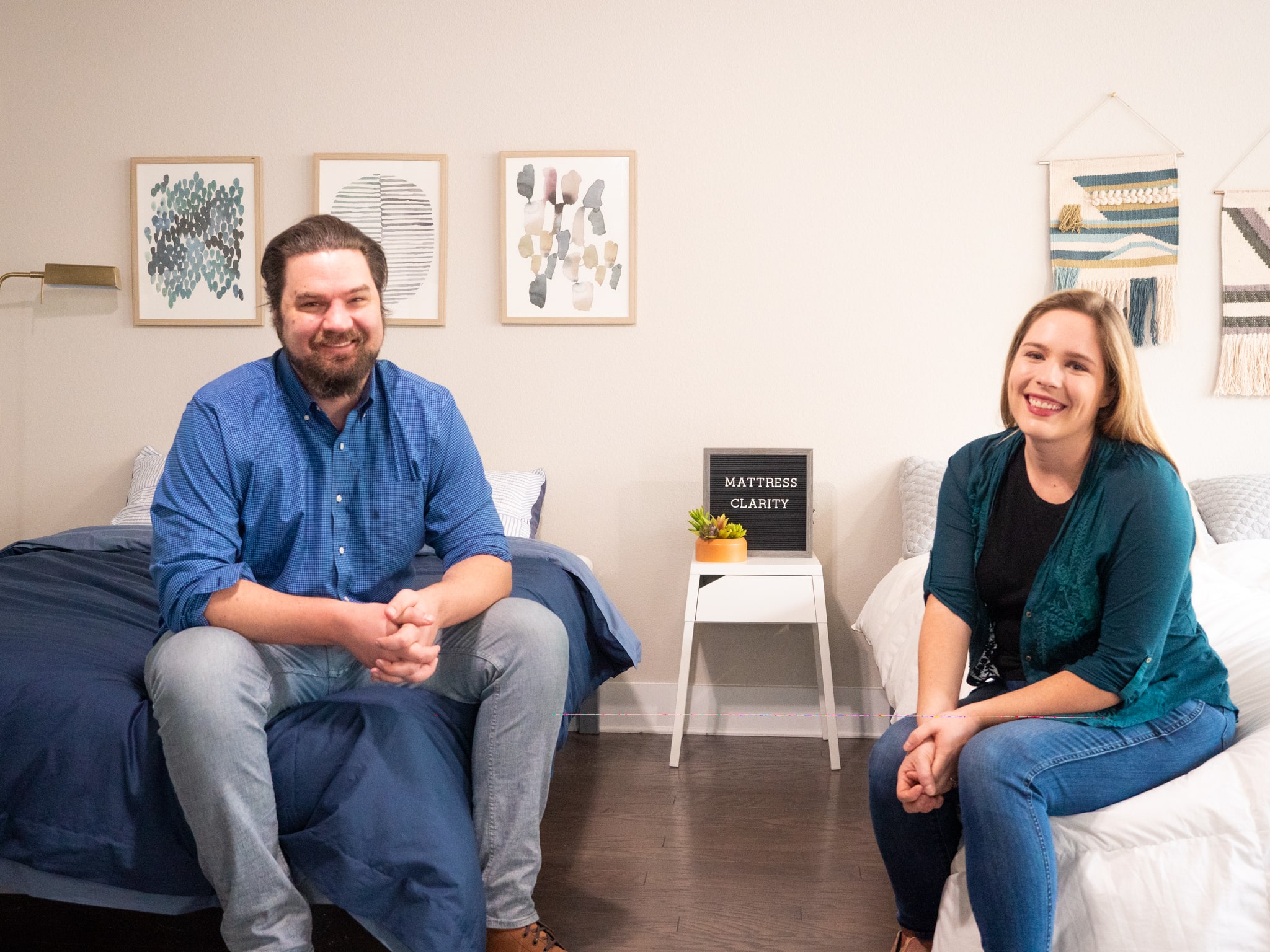In the Gregorian Calendar, January 1 marks the start of a new year. In countries that observe it, it’s known as a festive time full of celebrations. It’s also a time to reflect on the year past and the changes we might want to make going forward. These changes are often referred to as New Year’s resolutions, and people have been making them for thousands of years.
According to History.com, about 4,000 years ago the Babylonians made some form of New Year’s resolutions (data on follow through rates unavailable). So for thousands of years, people have been trying to better themselves at the start of each new year.
To find out what sort of resolutions our Mattress Clarity readers are making, we collected data from a survey, polling a range of folks from Generation Z to the silent generation, on what changes they were hoping to make in the new year, in addition to some other lifestyle and sleep health questions. We found some unexpected results, including generational overlap. Take a look at our findings below.
What are the Most Common New Year’s Resolutions?
In our survey, we gave respondents several categories to choose from that best described their New Year’s resolution. We chose some of the most common changes people tend to make, like altering their diet or exercise routine, starting a new hobby or career, or taking better care of their finances.
We found that a majority of respondents (33%) said saving money was their top resolution. In fact, broken down by generation, the majority of each group wanted to save more money in the new year. A close second was losing weight/exercising, with 27.38% of respondents putting it as their goal. Surprisingly (at least for a sleep expert like myself) very few respondents, just 4.25%, listed getting more sleep as their resolution.
Should Americans Place a Greater Emphasis on Sleep?
Though less than 5% of respondents wanted to get better sleep in the new year, quite a few (61%) said they either agreed or strongly agreed with the statement: “I am desperate to get a good night’s sleep.” It seems that though people want to get better sleep, other things, like saving money or focusing on career goals, tend to take priority.
However, what people might not realize is that getting better sleep can actually make accomplishing other goals easier. How well we sleep is tied to both our physical and mental health. A number of bodily systems rely on proper sleep to function optimally, like our immune system and brain. Lack of sleep can have serious, and sometimes life-threatening, effects on the body. Below, I’ll discuss how sleep affects the body in greater detail and illustrate how proper sleep can be more beneficial than you might realize.
How Can Sleep Help with Your New Year’s Resolutions
Have you ever noticed everything seems a lot harder to do when you’re tired? Though getting better sleep might not be on the top of your list of things you want to accomplish in the new year, proper rest can actually help achieve goals more easily. When we’re rested, we have more energy, stamina, and mental clarity — all of which we need to complete physical and mental tasks. Below, I’ll share how sleep makes it easier to accomplish a few common goals.
Sleep and Exercise
Sleep and exercise have a reciprocal relationship — the better you sleep, the easier it will be to exercise, and vice versa. When you exercise properly, meaning that for about 30 minutes per day you do an activity that gets your heart rate up, you’ll find it easier to both fall and stay asleep. This is because exercise helps relieve stress and promote a more balanced mood, both of which promote better sleep.
Sleep is also necessary for proper athletic performance. That’s because when we sleep, our body releases hormones that aid in muscle recovery. Studies have shown that athletes who get proper sleep are less likely to be injured than those who do not. So if your New Year’s resolution is to exercise more or improve your athletic skill, you’ll want to make sure you’re getting enough rest to do so!
Sleep and Weight Loss/Nutrition
If your New Year’s resolution is to lose a few pounds, you’ll find that getting enough shut-eye is an essential component of weight loss. Those who don’t sleep enough are more likely to eat more, have poor diets, and be obese. That’s in part due to a raising of leptin, the hunger suppressing hormone, and a lowering of ghrelin, the hunger-inducing hormone, that occurs while we are sleeping. Chronic sleep deprivation can throw the balance of ghrelin and leptin out of whack, and it has been associated with a higher BMI.
Beyond losing weight, sleep is essential for our bodies to process nutrients effectively. When we don’t sleep enough, our body releases stress hormones like cortisol, which disrupt our metabolic processes and gut health. On the other hand, we also need proper nutrition to sleep well. Consuming a healthy diet and avoiding caffeine and alcohol before bed promotes a better night’s rest.
Sleep and Stress
As you might already know, it can be hard to fall and stay asleep when you’re stressed. Unfortunately, a lack of sleep can also worsen stress. Whether your stress is related to school, finances, or relationships, it’s important to try and identify the cause of your anxiety so you can tackle it.
There’s a number of emotional wellness tools you can use to lessen your stress levels, which in turn will help you get better sleep. From mindfulness smartphone apps like Calm and Headspace, to weighted blankets, magnesium supplements, and activities like reading and journaling, there are a number of ways you can destress in the comfort of your own home.
Simple Sleep Goals for the New Year
So by now you might be convinced that getting better sleep is a good way to start off the new year and set the right foundation for accomplishing your other goals. Well, the good news is that it’s not hard to get better sleep, It just takes a few simple changes that if you can stick to, can work wonders. Take a look at a few of our top tips below:
- Establish a consistent nighttime routine
- By making sure you’re going to bed and waking up at (or around) the same time each day, you’re training your body and mind. This will make it easier to fall asleep and wake up, and you’ll find yourself feeling less tired throughout the day.
- Try a quick meditation before bed
- If you find it difficult to fall asleep, you might benefit from meditation before bed. By taking even a few minutes to quiet your mind before you go to sleep, you’ll be telling your body that it’s ready for rest. Phone apps like Calm and Headspace have guided meditations for beginners.
- Ensure you don’t drink alcohol or caffeine at least two hours before bed
- One of the worst things you can do is consume alcohol or caffeine right before bed. These substances stay in our body longer than we might think, and they can affect our sleep cycles. Leaving time for your body to metabolize these substances before you go to bed means they’re less likely to interfere with your sleep.
Mattress Clarity’s Resolutions
In a separate survey that we conducted on MattressClarity.com, we asked respondents to identify their top resolutions for the New Year. A not-so-surprising 73% of respondents want to improve their sleep, followed by 53% wanting to improve their nutrition and 46% wanting to improve their finances.
Our #1 goal is to help people get better sleep. Take a look at some of the personal goals of the Mattress Clarity team!
- Be more adventurous
- Wear more sequins
- Explore more places
- Learn new things
- Reading more books. I read 20 in 2021, so I could up that goal to 22 for 2025!
- Start hiking! I hope to get some hiking boots and Central Texas has tons of hiking trails.
- Less chocolate/sweets
- More exercise, workouts
Angela Petulla, Sr. SEO Associate
- Launch my Etsy store with my sister
- Score less than 7 in a game of disc golf
- Live simply and more purposefully while eliminating unnecessary stressors
- Seek adventure by intentionally reducing screen time and experiencing more of the world
Victoria Wildhorn, Content Marketing Strategist 
- Find a new hobby that I love
- Amp up daily activity by doing pilates and taking more walks with my dog

